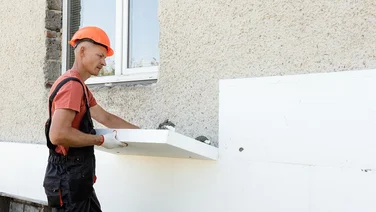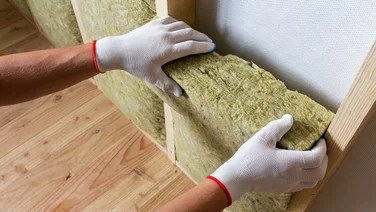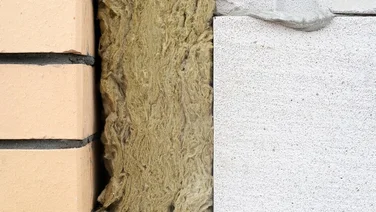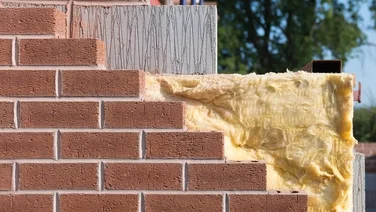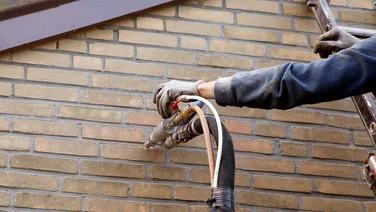We receive a small fee from trusted installers when you request a quote through our site. This helps us keep our content independent, well-researched and up to date – Learn more
- ECO+ will help around 70,000 households insulate their properties
- The government has earmarked £1 billion to fund ECO+
- Households could save an average of £310 a year through the scheme
Please note: As of March 2023, the government’s ECO+ scheme is now called the Great British Insulation scheme.
Struggling with insulation prices and looking for insulation grants? The UK government operates a scheme called ECO+, also known as the Great British Insulation Scheme.
The scheme acts as an extension of the government’s existing ECO4 scheme, which supports low-income households with retrofitting their properties. If you’re not familiar with either of these schemes, don’t worry – we’ve got everything you need to know on the page below.
Get free insulation quotes
Answer a few quick questions, and our trusted installers will send you bespoke insulation quotes – for free.

What’s on this page?
What is the ECO+ scheme?
ECO+ (also branded as ECO Plus) is a new government initiative that aims to improve energy efficiency in properties around the UK.
The scheme will extend the support that’s currently offered by the existing Energy Company Obligation (ECO4), which offers financial support to low-income and vulnerable households to improve the energy efficiency of their homes.
Grant Shapps – the Secretary of State for Business, Energy, and Industrial Strategy – launched ECO+ as part of new government measures to cut people’s energy use by 15% by 2030.
What exactly will the scheme cover?
The government has allocated £1 billion to the project, and claims it will cover up to 75% of the costs of either loft insulation or cavity wall insulation, and possibly smart heating controls. The households will pay the rest of the costs.
The government’s ECO+ proposal report states that all eligible respondents will be able to have insulation measures installed – with the low-income group also being eligible for heating control installation.
How will this impact Brits? According to the Energy Saving Trust, installing loft insulation could save the average household between £330 and £590 per year on their heating bills, whilst cavity wall insulation could save a household between £180 and £690 per year – depending on the property type.
Plus, homeowners can look forward to decades of savings, since insulation can last for up to 40 years.
ECO Plus eligibility requirements
The government has stated that ECO+ will build on the infrastructure of the existing ECO4 scheme, which means it has the same scoring framework and eligibility threshold.
For context, the ECO4 scheme aims to support the least energy-efficient homes in the country, with a focus on low-income and vulnerable households. Here are the eligibility requirements for ECO4:
- Income-based Jobseekers Allowance (JSA)
- Income-related Employment & Support Allowance (ESA)
- Income Support (IS)
- Pension Credit Guarantee
- Credit Working Tax Credit (WTC)
- Child Tax Credits (CTC)
- Universal Credit (UC)
- Housing Benefit
- Pension Credit Savings Credit
However, unlike ECO4, ECO+ is also branching out to support households that don’t come under the low-income bracket. ECO+ will support all homes that are in council tax bands A-D in England, A-E in Scotland, and A-C in Wales – but only if they have an EPC of D or below.
ECO+ funding is also available to landlords – provided the tenants meet certain criteria, such as earning a low income and living in a property with an EPC-rating D or below.
You can use this government tool to check if you’re eligible for support, and to apply for a grant.
When will ECO+ be available?
The ECO+ scheme will start in April 2023 and will run for three years, until 2026.
Around 70,000 homes are expected to benefit from the scheme during this three-year period, according to The Times.

How do you apply for ECO+?
It’s still early days for ECO Plus – in fact, it’s still in its consultation phase, which will end on 23 December 2022.
This means there’s limited information on certain aspects of ECO+, including how people can apply for it.
So far, the government has simply stated that funding “will be administered by energy suppliers”. It has also claimed that the scheme will work as an extended version of ECO4, which suggests the application process will be the same. This is great news for homeowners, considering how easy it is to apply for the ECO4 scheme.
To apply for the ECO4 scheme, applicants just need to get in touch with one of the energy suppliers that are offering it.
They’ll then be taken through a telephone assessment, which will include answering questions about various things, including their income, whether they receive certain benefits, and their property’s energy efficiency rating.
The installer will then arrange a date to visit their home and confirm whether it’s suitable for the grant.
How is ECO+ different from ECO4?
The ECO4 scheme targets low-income households who cannot afford to upgrade their insulation or heating system. The ECO+ scheme, on the other hand, will offer additional support to people who currently don’t benefit from other government support schemes but live in an inefficient property.
These two schemes will be running side by side, and overlap heavily. To avoid homes being treated under ECO+ when they could receive a deeper retrofit under ECO4, the government has suggested that “low-income group homes with EPC bands D, E, F or G that cannot meet the ECO4 minimum score improvement requirement will be eligible for support under ECO+”.
Summary
The UK has some of the least efficient homes in Europe, which are in dire need of a makeover. One of the key ways Brits can improve their home’s efficiency is by insulating their walls and roofs – but not everyone can afford this.
This is why the government has released the ECO+ scheme, with the aim of financially supporting people during this transition.
But since only an estimated 70,000 homes will benefit from this scheme over a three-year period – is it really enough? It’s certainly a start, but the UK desperately needs more schemes to support people insulating their homes.


